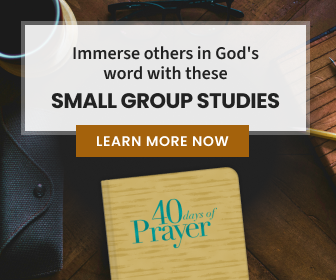Fellowship
4 Essential Elements of Healthy Small Groups

When it comes to fellowship, size matters: Smaller is better. You can worship with a crowd, but you can’t fellowship with one. Once a group becomes larger than about 10 people, one or two will dominate the group, and someone—usually the quietest person—will stop participating altogether.
Unfortunately, creating small groups within your church does not guarantee your people will experience real community. Many Sunday school classes and small groups are stuck at a superficial level and have no clue as to what it’s like to experience genuine fellowship. They may share a meal together, but they don’t share their lives.
As a pastor, you can build small groups that matter—groups that provide a place for members to fully experience biblical fellowship—by focusing on four essential elements: authenticity, mutuality, sympathy, and mercy.
Authenticity
Authentic fellowship is not superficial, surface-level chit-chat. It is genuine, heart-to-heart, sometimes gut-level, sharing. It happens when people get honest about who they are and what is happening in their lives—when they share their hurts, reveal their feelings, confess their failures, disclose their doubts, admit their fears, acknowledge their weaknesses, and ask for help and prayer.
Of course, being authentic requires both courage and humility. It means facing our fear of exposure, of rejection, and of being hurt again. Why would anyone take such a risk? Because it’s the only way to grow spiritually and maintain emotional health. The Bible says, “Make this your common practice: Confess your sins to each other and pray for each other so that you can live together whole and healed” (James 5:16 The Message).
We only grow by taking risks, and the most difficult risk of all is to be honest with ourselves and with others.
Mutuality
Mutuality is the art of giving and receiving. It’s depending on each other. The Bible says, “The way God designed our bodies is a model for understanding our lives together as a church: every part dependent on every other part” (1 Corinthians 12:25 The Message). Mutuality is the heart of fellowship. It’s building reciprocal relationships, sharing responsibilities, and helping each other. Paul said, “I want us to help each other with the faith we have. Your faith will help me, and my faith will help you” (Romans 1:12 NCV).
All of us are more consistent in our faith when others walk with and encourage us. The Bible commands mutual accountability, mutual encouragement, mutual serving, and mutual honoring. More than 50 times in the New Testament we are commanded to do different tasks to “one another” and “each other.” The Bible says, “Make every effort to do what leads to peace and to mutual edification” (Romans 14:19 NIV).
Sympathy
Sympathy is not giving advice or offering quick, cosmetic help; sympathy is entering in and sharing the pain of others. The Bible commands: “Share each other’s burdens, and in this way obey the law of Christ.” (Galatians 6:2 NLT).
Sympathy says, “I understand what you’re going through, and what you feel is neither strange nor crazy.” The fellowship of suffering is the deepest, most intense level of fellowship. It’s where we enter into each other’s pain and grief and carry each other’s burdens.
We need each other most during times of deep crisis, grief, and doubt. When circumstances crush us to the point that our faith falters, that’s when we need believing friends the most. We need a small group of friends to have faith in God for us and to pull us through. In a small group, the Body of Christ is real and tangible, even when God seems distant.
Mercy
Fellowship is a place of grace—a place where mistakes aren’t rubbed in, they’re rubbed out. Fellowship happens when mercy wins over justice.
We all need mercy, because we all stumble and fall and require help getting back on track. We need to offer mercy and be willing to receive mercy from each other. God says, “When people sin, you should forgive and comfort them, so they won’t give up in despair” (2 Corinthians 2:7 CEV).
Forgiveness must be immediate, whether or not a person asks for it. You can’t have fellowship without it. After sins are forgiven trust can be rebuilt. This takes time. The best place to restore trust is within the supportive context of a small group that offers both encouragement and accountability.
Real fellowship is an essential part of the Christian life. It cannot be overlooked. Building small groups around authenticity, mutuality, sympathy and mercy will provide a place where your members can find the fellowship they need and begin soaring in their walk with Christ.















